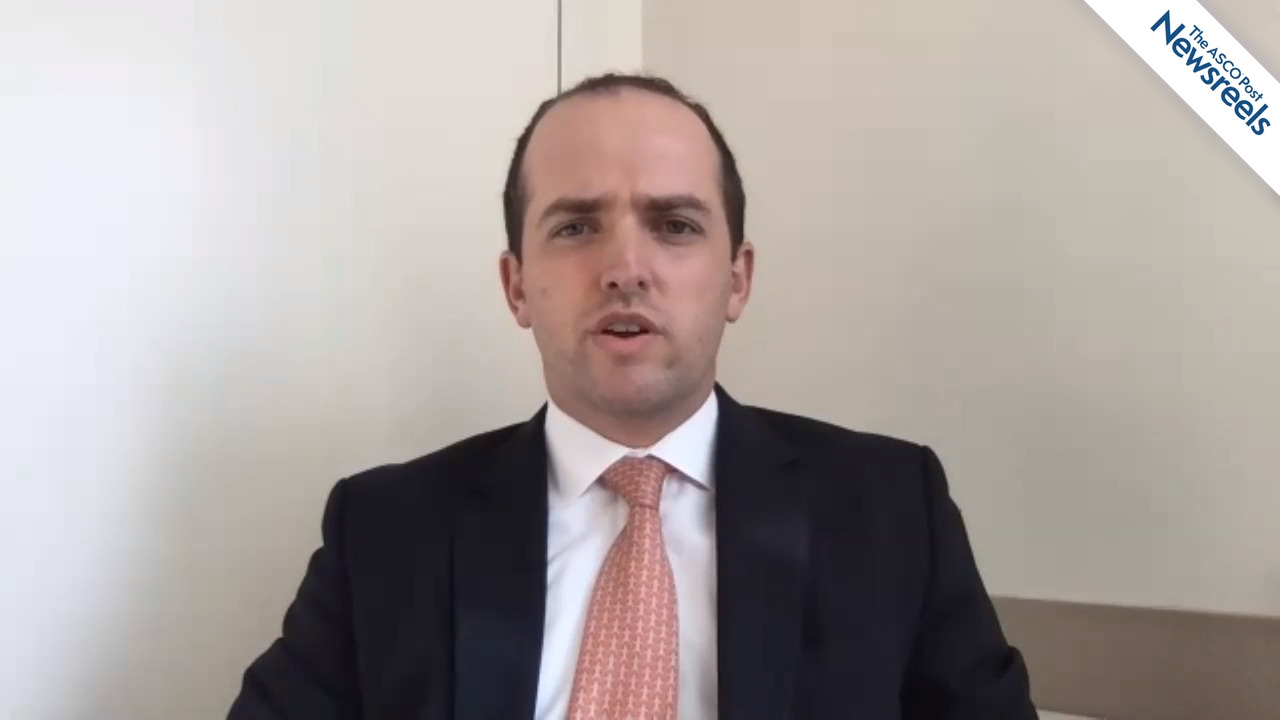Michael S. Hofman, MBBS, on Prostate Cancer: LuPSMA vs Cabazitaxel in Metastatic Castration-Resistant Disease
ASCO20 Virtual Scientific Program
Michael S. Hofman, MBBS, of the Peter MacCallum Cancer Centre, discusses phase II results from the ANZUP 1603 trial, which showed that in men with docetaxel-treated metastatic castration-resistant prostate cancer, LuPSMA was more active than cabazitaxel, with relatively fewer grade 3 and 4 adverse events and a more favorable PSA progression-free-survival (Abstract 5500).
The ASCO Post Staff
Eric Zhou, PhD, of Dana-Farber Cancer Institute, discusses an existing online program called SHUTi (Sleep Healthy Using the Internet), that he and his team adapted to the needs of adolescent and young adult cancer survivors. After six online cognitive behavior therapy sessions delivered over 8 weeks, the 22 patients in the study reported a significant reduction in insomnia severity, daytime sleepiness, and fatigue as well as an overall improvement in quality of life.
The ASCO Post Staff
David R. Wise, MD, PhD, of New York University Perlmutter Cancer Center, summarizes three important studies in prostate cancer: circulating tumor cell count as a prognostic marker of PSA response and progression in metastatic castration-sensitive disease; new phenotypic subtypes; and how circulating tumor DNA dynamics associate with treatment response and radiologic progression-free survival (Abstracts 5506, 5507, and 5508).
The ASCO Post Staff
Howard A. Burris III, MD, FACP, FASCO, talks about some of the reports of research developments he is looking forward to and how future conferences could incorporate virtual presentations.
The ASCO Post Staff
Richard L. Schilsky, MD, Chief Medical Officer of ASCO, talks about some of the most important and practice-changing findings presented this year at the ASCO20 Virtual Scientific Program, including the use of targeted and immunotherapies in earlier lines of therapy, where they have made a significant impact.
The ASCO Post Staff
Nirav Niranjan Shah, MD, of the Medical College of Wisconsin, explores whether autologous transplantation, in patients with relapsed diffuse large B-cell lymphoma who achieve only a PET/CT-positive partial remission, is appropriate in the era of CAR T-cell therapy (Abstract 8000).





